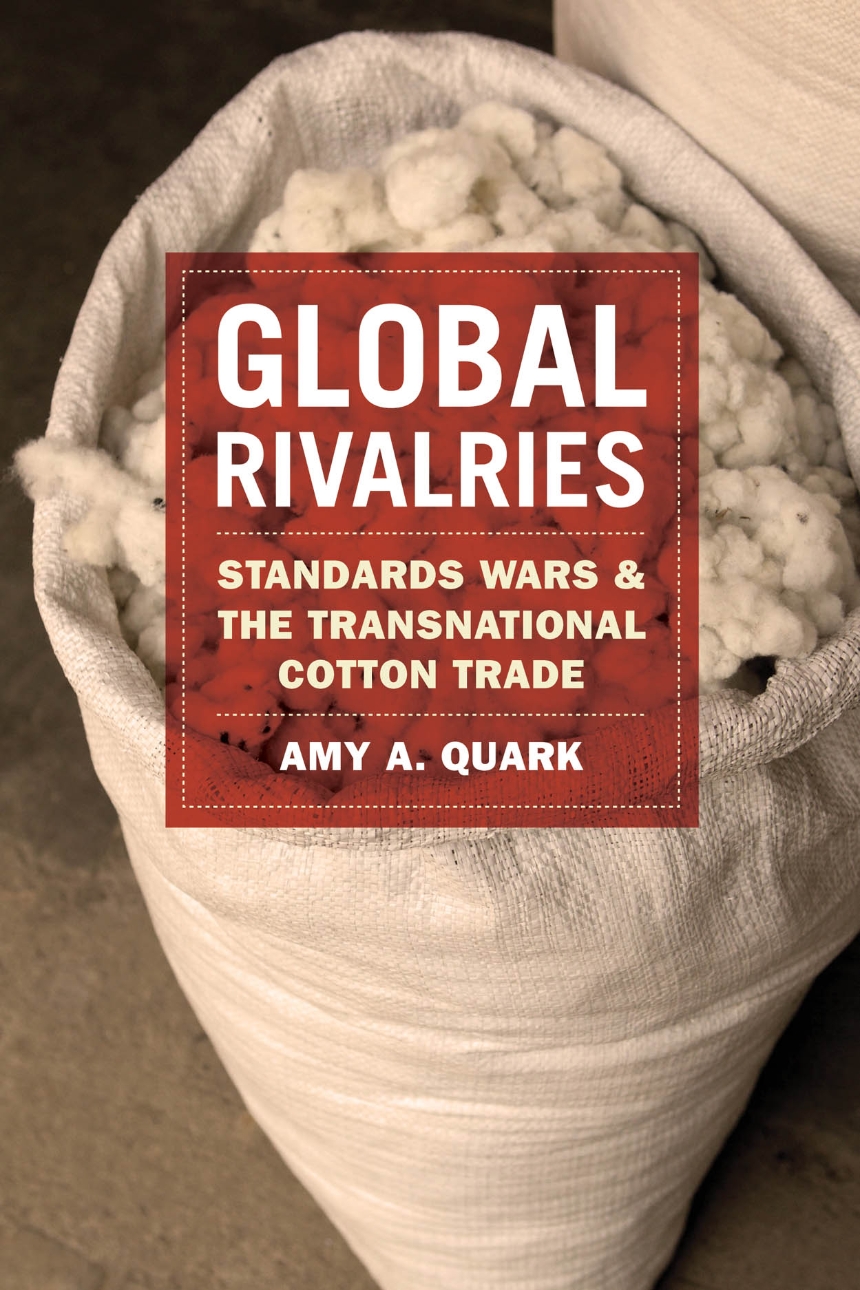Global Rivalries
Standards Wars and the Transnational Cotton Trade
Global Rivalries
Standards Wars and the Transnational Cotton Trade
Nowhere is the conflict over rule setting more evident than in the simmering “standards wars” over the rules that define quality and enable the adjudication of disputes. In Global Rivalries, Amy A. Quark explores the questions of how rules are made, who makes them, and how they are enforced, using the lens of cotton—a simple commodity that has become a poignant symbol of both the crisis of Western rule making power and the potential for powerful new rivals to supplant it. Quark traces the strategies for influencing rule making processes employed not only by national governments but also by transnational corporations, fiber scientists, and trade associations from around the globe. Quark analyzes the efficacy of their approaches and the implications for more marginal actors in the cotton trade, including producers in West Africa.
312 pages | 19 line drawings, 12 tables | 6 x 9 | © 2013
Economics and Business: Economics--International and Comparative
Political Science: Diplomacy, Foreign Policy, and International Relations
Sociology: Social Change, Social Movements, Political Sociology
Reviews
Table of Contents
Acknowledgments
Chapter One: Introduction
Chapter Two: Standards Wars and the Original Competing Kings of Cotton
Chapter Three: A Project of Uneven Liberalization
Chapter Four: The World Trade Organization and the New Competing Kings of Cotton
Chapter Five: Imitate and Overtake?
Chapter Six: Switching Tracks
Chapter Seven: Conclusion
Notes
References
Index
Awards
ASA Global and Transnational Sociology Section: Best Scholarly Book Award
Won
ASA Sociology of Development Section: Sociology of Development Book Award
Honorable Mention
